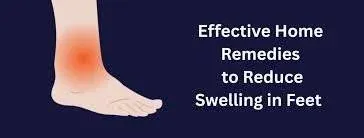In today’s connected world, digital devices are everywhere. Smartphones, laptops, and TVs have become part of daily routines at work, school, and home. While technology has many benefits, constant exposure to screens can harm physical and mental health. Taking a Digital Detox is about intentionally reducing screen time to create space for rest, focus, and real-life connections. Let’s explore why stepping away from screens is more important than ever and how it positively impacts overall wellness.
What Is a Digital Detox?
A Digital Detox refers to a planned break from digital devices like phones, tablets, and computers. It doesn’t mean abandoning technology completely but rather creating healthy boundaries. By cutting down on non-essential screen time, people often feel less stressed, more energized, and more present in daily life.
Why Screen Time Affects Health
Excessive screen use affects the body and mind in multiple ways. Prolonged hours on digital devices can:
Cause eye strain and headaches
Disrupt natural sleep cycles
Lead to poor posture and back pain
Increase stress and anxiety levels
Reduce productivity and focus
Understanding these risks helps explain why a Digital Detox is essential for long-term health.
1. Better Sleep Quality
Blue light from screens interferes with melatonin production, the hormone responsible for sleep. Scrolling late at night keeps the brain alert, making it harder to rest. By reducing screen use at least an hour before bed, the body can reset its natural rhythms. Many people find that a Digital Detox leads to deeper, more restorative sleep.
2. Reduced Stress and Anxiety
Constant notifications and online comparisons often create pressure and anxiety. Social media, in particular, can make people feel overwhelmed. Taking time away from devices reduces information overload and helps the mind relax. Even short digital breaks during the day lower stress and bring emotional balance.
3. Improved Focus and Productivity
Switching between apps, messages, and tabs reduces attention span. A Digital Detox helps retrain the brain to focus on one task at a time. Whether at work or during personal projects, reducing screen time allows for greater efficiency and better results.
4. Stronger Real-Life Connections
Excessive screen time can reduce the quality of personal interactions. Putting down devices during meals or family gatherings strengthens relationships. Digital Detox practices encourage meaningful conversations and shared experiences that screens often interrupt.
5. Physical Health Benefits
Sitting too long while using devices contributes to poor posture, neck pain, and reduced circulation. A Digital Detox naturally encourages more physical activity—walking, exercising, or simply spending time outdoors. Movement not only benefits the body but also improves mood and energy levels.
6. Eye Health and Reduced Strain
Many people experience digital eye strain, also known as computer vision syndrome. Symptoms include dry eyes, headaches, and blurred vision. By reducing screen time and practicing the 20-20-20 rule (looking at something 20 feet away for 20 seconds every 20 minutes), eye discomfort decreases significantly.
7. Increased Creativity and Mindfulness
Screens often fill every spare moment with noise and distraction. Taking breaks allows the brain to rest and spark new ideas. Activities like journaling, meditation, or spending time in nature boost creativity and mindfulness. A Digital Detox helps people reconnect with themselves instead of constantly reacting to digital input.
How to Start a Digital Detox
A detox doesn’t have to be extreme. Even small steps make a big difference. Here are simple ways to get started:
Set daily limits on social media use.
Turn off unnecessary notifications.
Establish device-free zones at home (bedroom, dining area).
Replace evening screen time with reading or light stretching.
Schedule outdoor activities that don’t involve devices.
By making these adjustments, anyone can enjoy the benefits of a Digital Detox without feeling disconnected from the world.
Digital Detox in the Workplace
Many professionals spend 8–10 hours daily in front of screens. Over time, this leads to fatigue and burnout. Employers can encourage Digital Detox practices by promoting screen breaks, walking meetings, or limiting after-hours emails. These small shifts improve employee health and workplace productivity.
Finding Balance in a Digital World
Technology itself is not the enemy. The key lies in balance. By consciously choosing when and how to use devices, people can enjoy the benefits of technology without sacrificing well-being. A Digital Detox is not about giving up progress but about making healthier choices.
Final Thoughts
Screens are powerful tools, but overuse can harm health, relationships, and productivity. A Digital Detox offers a simple yet effective way to restore balance. By reducing screen time, people enjoy better sleep, lower stress, and stronger connections. Small daily changes—like unplugging before bed or creating device-free spaces—can transform overall wellness. In the end, learning why reducing screen time improves health is the first step toward a more mindful, balanced lifestyle.





